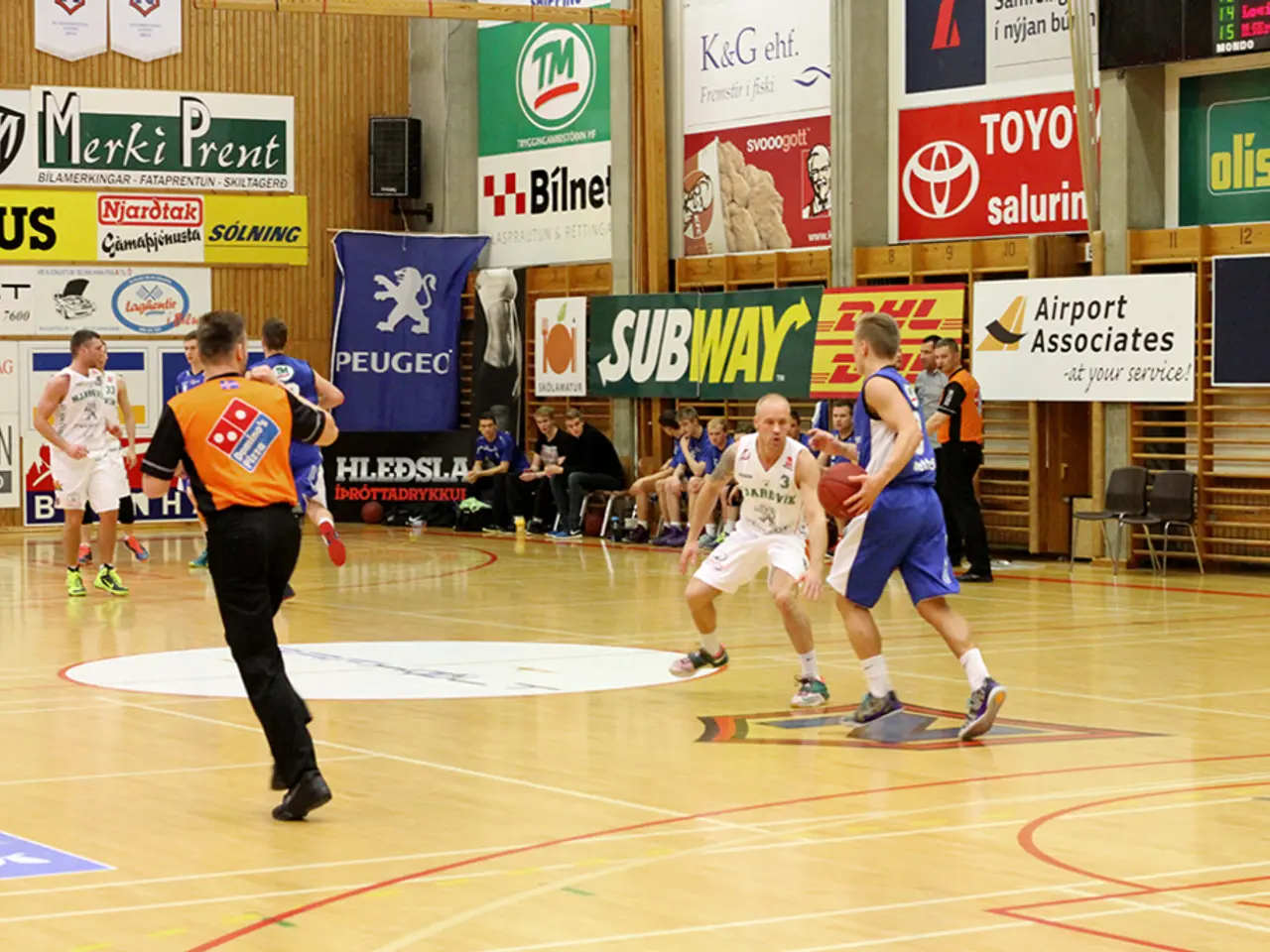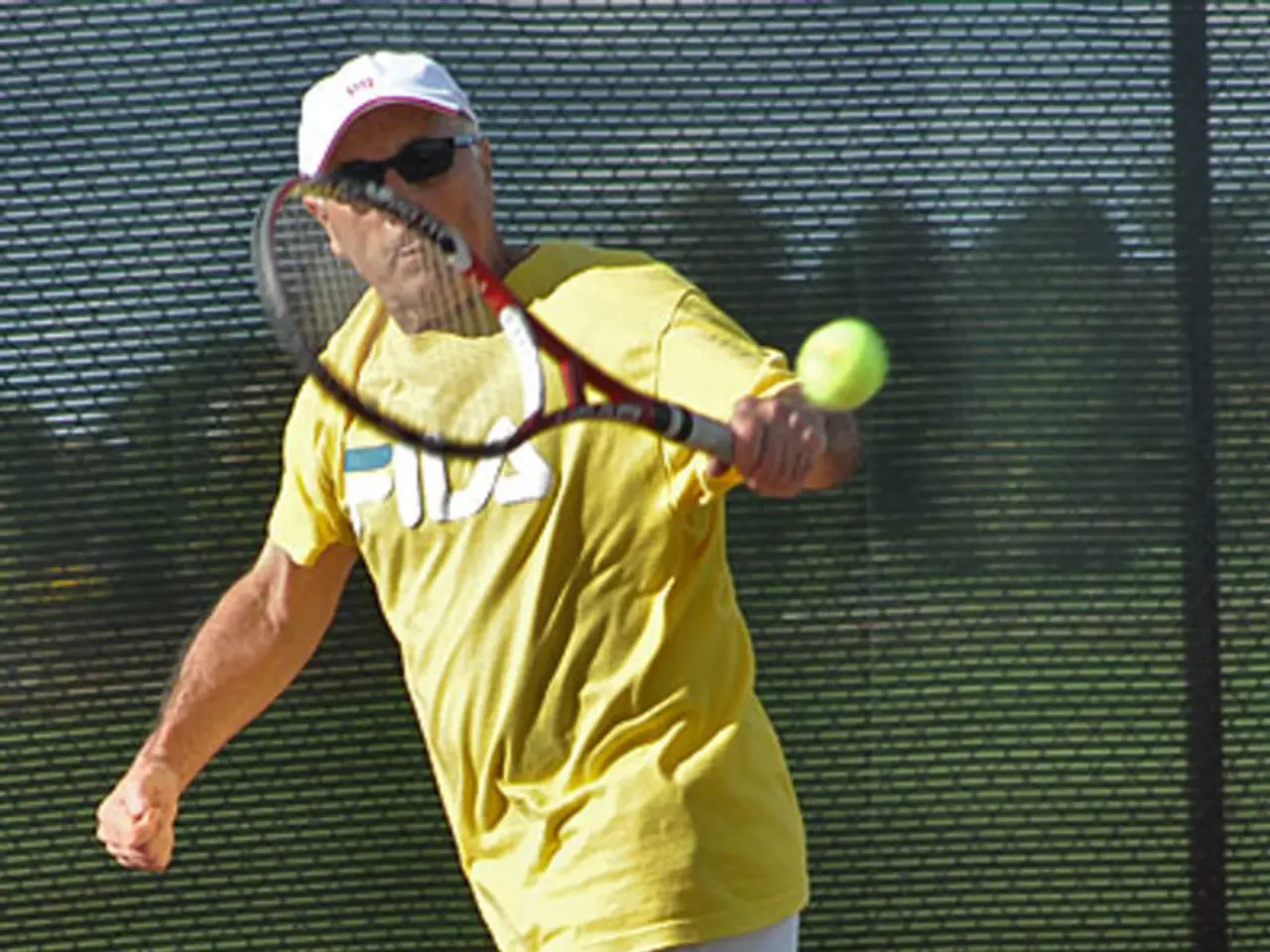Persistent weather disturbances test resilience of ITF tournament
KUCHING: UNPREDICTABLE WEATHER TESTS Organizers and Players at ITF Asian Junior Championships
Despite the torrential downpours and gloomy skies, the ITF Asian 14 and Under Championships in Kuching managed to wrap up on schedule, much to the relief of all involved. The tournament, battered by inclement weather for three straight days, was a mental marathon for players, who had to endure the almost daily interruptions caused by the rain.
According to Sarawak Lawn Tennis Association (SLTA) president Patrick Liew, the unstable weather had wreaked havoc on the tournament schedule but, other than that, things remained fairly on track. The first leg matches, due to end on January 14, were extended by an additional two days, while the second leg doubles competition were called off entirely. The second leg singles matches were completed on Tuesday, with Adas Seif of Jordan taking the boys' title after his Sri Lankan opponent, Sharma Dissanayake, was forced to retire due to injury in the second set. Malaysia's Choo Lyn Yuen emerged victorious in the girls' final, crushing Joy Chia of Singapore 6-0, 6-1.
"Putting together an international tournament like this isn't a walk in the park," Liew explained. "You have to juggle a whole bunch of factors - weather, finances, logistics, manpower, preparing facilities, organizing player and official accommodations, and ensuring top-notch medical care for the participants."
Under ITF guidelines, the organizer must also make sure a medical team is on standby to attend to any injuries sustained by the players. In addition, fruit juice and nutritious food had to be provided for all players during the championship. To meet ITF basic requirements for the courts and facilities, the SLTA needed to ensure that coaches, managers, players, and their families were well taken care of in terms of accommodations, food, and transportation to and from the event venue.
"We wouldn't want them to leave with anything less than a positive impression," Liew emphasized. To boost SLTA's chances of hosting the tournament again, all team captains and managers will fill out a survey form to be forwarded to ATF and ITF.
When it comes to securing funding for the tournament, Liew believes strong financial support from either the government or the private sector is crucial. "If there are no sponsors, there will be no tournament and no programs for development," he said.
Organizing an international ITF event like this requires a significant budget to cover venue rental, court preparation, ITF recognition fees, player prize money, staff salaries, and marketing expenses. Sponsorship and fundraising efforts are necessary to offset costs and elevate the tournament's profile. Ticketing sales, broadcasting rights, and merchandising revenue can also contribute to the event's financial feasibility.
In light of ITF regulations, the organizer must also be prepared to fulfill fees related to tournament approvals and certifications. Viable transportation, technology for scoring and media coverage, and efficient scheduling that factors in player recovery and weather predictions are all integral components of successful tournament organization.
To assemble a well-oiled machine, tournament organizers need a team of qualified officials, medical staff, and volunteers. Umpires, line judges, ball persons, and ITF-certified referees must be recruited to ensure compliance with rules and safety protocols. Briefings for all staff members are essential to share ITF regulations, tournament procedures, and emergency response plans.
International players require comfortable accommodations nearby the venue and accessible practice courts matching tournament surfaces. Player services such as medical and physiotherapy support, nutritional provisions, and relaxation areas should also be provided to maintain player well-being throughout the event. Assistance with visa applications and local transportation is crucial for those visiting from abroad.
In the end, balancing these considerations ensures a successful ITF international junior tennis tournament that meets professional standards, fosters a fair competition environment, and delivers a memorable experience for players and spectators alike.
"In the unpredictable weather conditions during the ITF Asian Junior Championships, some players may have found solace on the tennis court, escaping from the turmoil outside."
"Despite the challenges faced in organizing the tournament, such as inclement weather and extended match schedules, the focus on providing top-notch medical care, player accommodations, and a memorable experience for all participants remained a priority."







